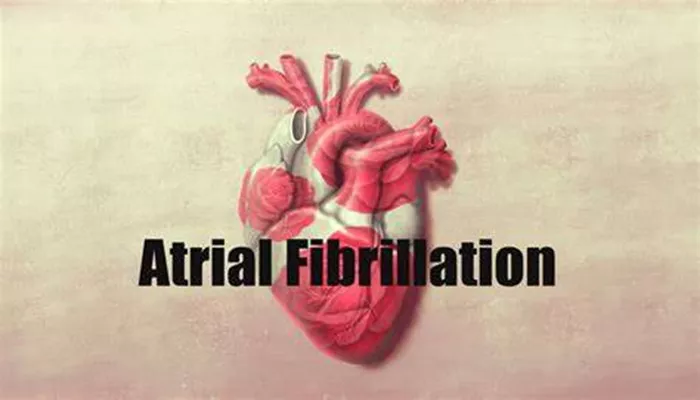Ischemic heart disease (IHD) and atrial fibrillation (AF) are two prevalent cardiovascular conditions that often coexist and significantly impact patient outcomes. IHD, characterized by reduced blood flow to the heart muscle due to coronary artery disease, can lead to various complications, including myocardial infarction and heart failure. AF, on the other hand, is a common arrhythmia marked by irregular and often rapid heartbeats, which can result in palpitations, fatigue, and an increased risk of stroke.
The relationship between IHD and AF is complex and multifaceted. Understanding whether ischemic heart disease can cause atrial fibrillation is essential for effective management and treatment strategies. This article explores the mechanisms linking these two conditions, their clinical implications, and the importance of addressing them in patient care.
Understanding Ischemic Heart Disease
Definition and Causes
Ischemic heart disease occurs when the coronary arteries become narrowed or blocked, leading to insufficient blood flow to the heart muscle. The primary causes include:
Atherosclerosis: The buildup of plaque (cholesterol, fat, and other substances) in the arterial walls.
Coronary artery spasm: Sudden tightening of the muscles within the arteries.
Risk factors: High blood pressure, diabetes, smoking, obesity, sedentary lifestyle, and genetic predisposition.
Symptoms
Patients with IHD may experience:
- Chest pain (angina)
- Shortness of breath
- Fatigue
- Heart palpitations
These symptoms arise due to inadequate oxygen supply to the heart muscle during physical activity or stress.
Understanding Atrial Fibrillation
Definition and Types
Atrial fibrillation is characterized by chaotic electrical signals in the atria, leading to ineffective contractions. There are several types of AF:
Paroxysmal AF: Episodes that come and go spontaneously.
Persistent AF: Continuous AF that lasts longer than seven days.
Permanent AF: Long-term AF where normal rhythm cannot be restored.
see also: How Long Can You Live with Chronic Atrial Fibrillation
Symptoms
Common symptoms of AF include:
- Palpitations
- Dizziness or lightheadedness
- Fatigue
- Chest discomfort
In some cases, patients may be asymptomatic.
The Link Between Ischemic Heart Disease And Atrial Fibrillation
Pathophysiological Mechanisms
The connection between IHD and AF involves several pathophysiological mechanisms:
Myocardial Ischemia: Reduced blood flow can lead to myocardial injury, disrupting normal electrical conduction pathways in the heart. This disruption increases the likelihood of developing AF.
Structural Remodeling: Chronic ischemia can result in structural changes in the heart muscle (remodeling), including fibrosis and dilation of the atria. These changes create a substrate conducive to arrhythmias like AF.
Inflammation: Both conditions are associated with systemic inflammation. Inflammatory markers can contribute to electrical instability in the atria.
Autonomic Nervous System Imbalance: Increased sympathetic activity from stress or pain associated with IHD may trigger episodes of AF.
Clinical Evidence
Numerous studies have established a strong association between IHD and AF:
A study showed that about 15% of patients with IHD experience at least one episode of AF during their lifetime.
Patients with both conditions face a higher risk of mortality compared to those with only one condition.
The presence of AF in patients with IHD is linked to worse outcomes post-myocardial infarction.
Risk Factors for Atrial Fibrillation in Ischemic Heart Disease Patients
Several risk factors contribute to the development of AF in patients with IHD:
Age: Older adults are at greater risk for both conditions.
Hypertension: High blood pressure is a significant risk factor for both IHD and AF.
Diabetes: This metabolic disorder increases the likelihood of both ischemic events and arrhythmias.
Obesity: Excess weight contributes to both conditions through mechanisms like increased inflammation and altered hemodynamics.
Clinical Implications
Diagnosis
Diagnosing AF in patients with IHD requires careful assessment:
Electrocardiogram (ECG): The primary tool for diagnosing AF.
Holter Monitoring: Useful for detecting paroxysmal AF not captured on a standard ECG.
Echocardiography: Helps assess structural heart changes due to IHD.
Management Strategies
Managing patients with both conditions involves a multidisciplinary approach:
Anticoagulation Therapy: Patients with AF are at increased risk for thromboembolic events; therefore, anticoagulants are often prescribed.
Rate Control: Medications such as beta-blockers or calcium channel blockers help manage heart rate during episodes of AF.
Rhythm Control: Antiarrhythmic medications or procedures like catheter ablation may be considered to restore normal rhythm.
Lifestyle Modifications: Encouraging weight loss, smoking cessation, regular exercise, and dietary changes can improve outcomes.
Management of Comorbidities: Effective control of hypertension, diabetes, and hyperlipidemia is crucial in reducing risks associated with both conditions.
Conclusion
The interplay between ischemic heart disease and atrial fibrillation is significant and warrants attention from healthcare providers. Understanding that IHD can indeed contribute to the development of AF helps inform better management strategies for affected patients.
Given their shared risk factors and potential for adverse outcomes when they coexist, a comprehensive approach that includes prevention, early diagnosis, and effective treatment is essential. By addressing both conditions simultaneously, healthcare providers can improve patient quality of life and reduce mortality associated with these prevalent cardiovascular diseases.
Related topics:


